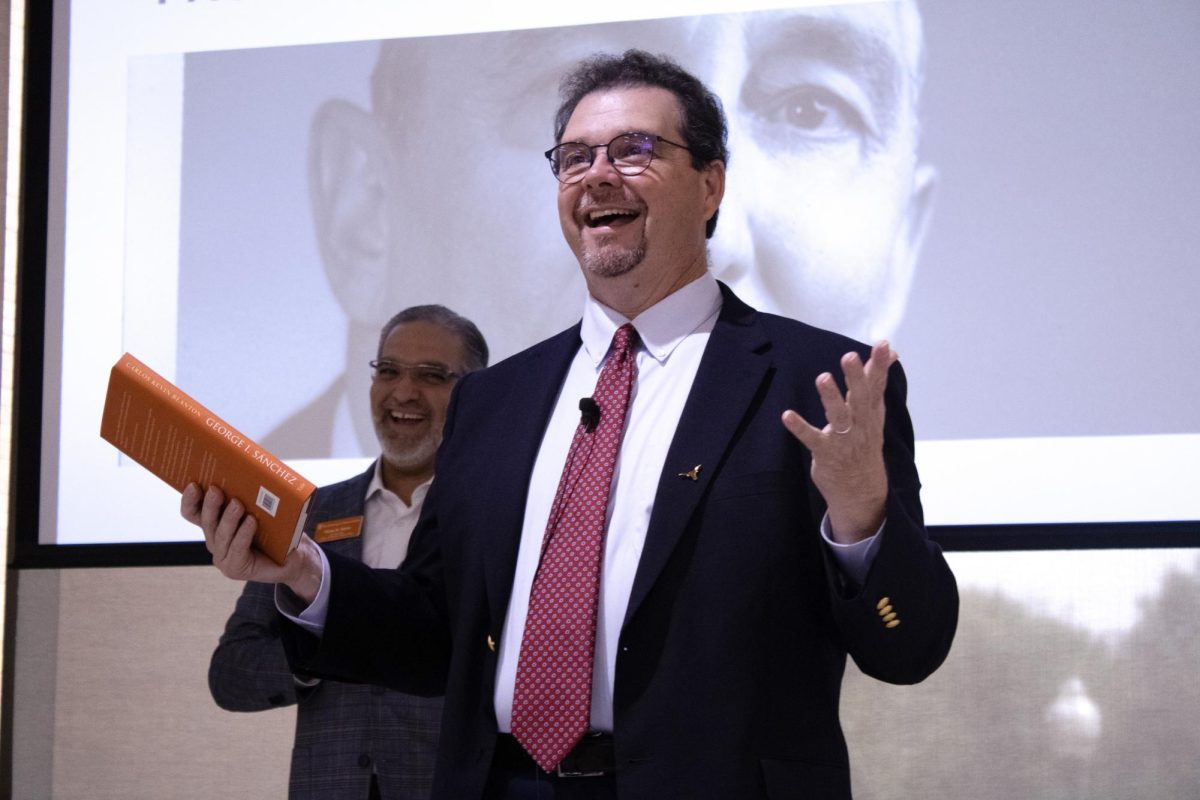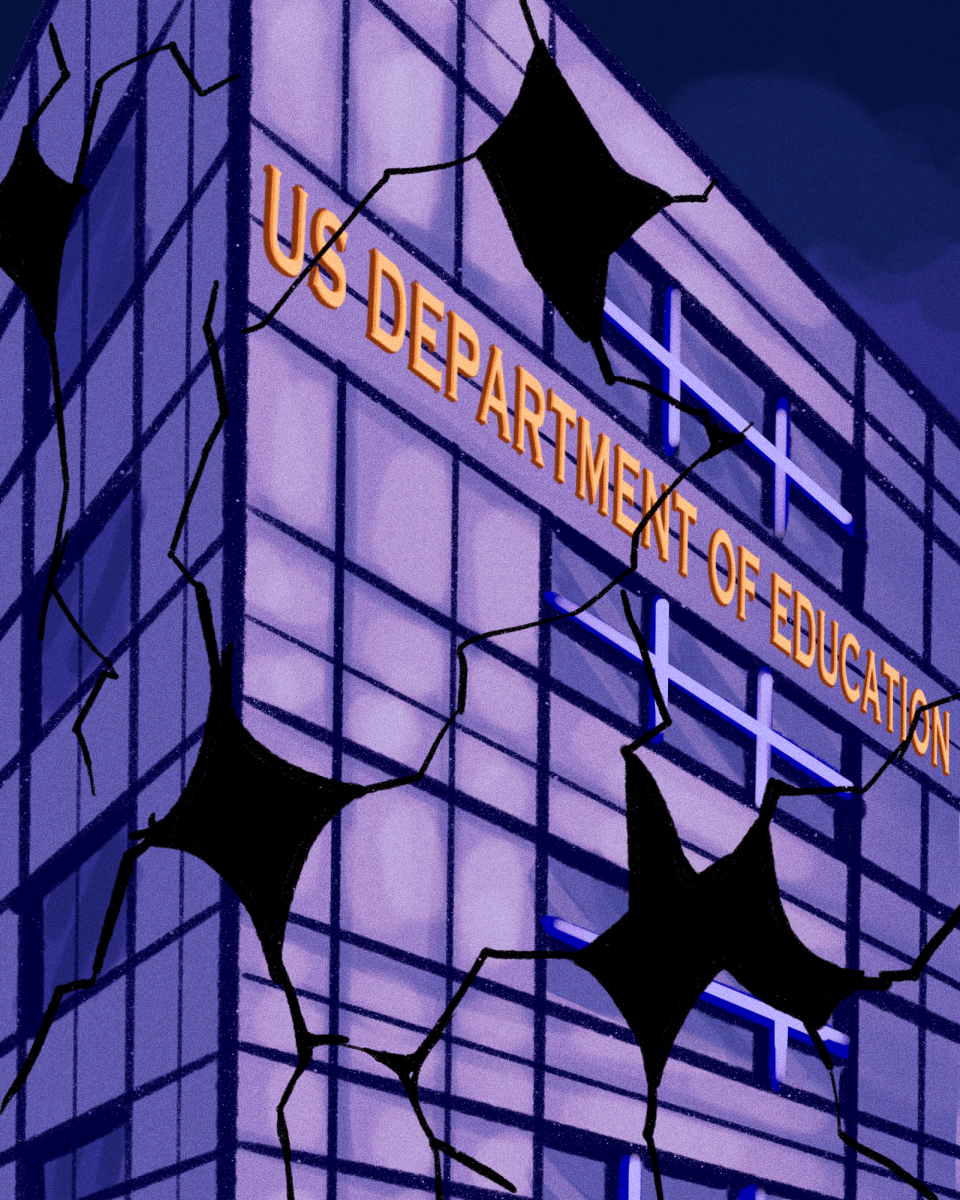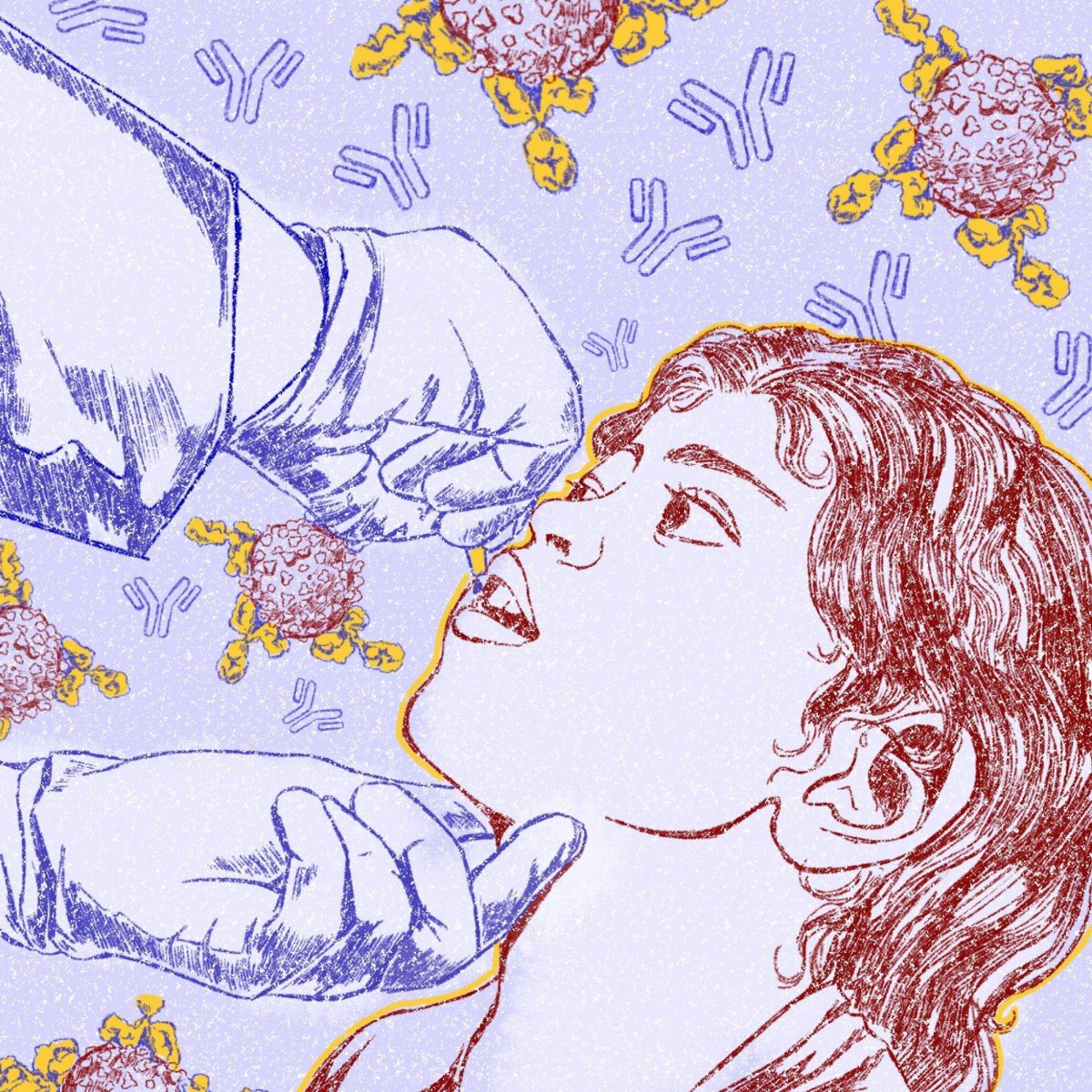The College of Education celebrated Hispanic Heritage Month on Tuesday with a lecture in honor of George I. Sánchez, a Mexican-American activist who fought for education reform.
Carlos Blanton, a Stuart professor of Texas history and author of the biography “George I. Sánchez: The Long Fight for Mexican American Integration,” delivered the lecture in the Sánchez building on campus.
Sánchez fought for Mexican-American integration in public schools and challenged standardized tests that discriminated based on English proficiency. He received a master’s degree from UT in 1931, then returned in 1940 as a professor of Latin American studies, a position he held until his death in 1972. The University named its College of Education building after Sánchez in 1991.
Blanton said historians continue to study Sánchez’s publications given current civil rights issues that persist for the Hispanic community.
“Some of these issues that he was fighting then are still very salient today,” Blanton said in an interview. “How equal do we want society to be? How much opportunity are we willing to provide for everyone? What’s the baseline of that opportunity, and what are we willing to do to get there? These are eternal issues.”
In his lecture, Blanton emphasized the role UT played in Sánchez’s development as an activist. One of his greatest influences was Herschel T. Manuel, a professor who spearheaded studies on the misapplication of IQ tests for Hispanic children, Blanton said.
“You could argue that the University of Texas has been one of the most important institutions in the study of Mexican-American education since the 1920s,” Blanton said. “That ought to be celebrated. … It’s a legacy of (the College of Education), and it’s a legacy of this University and it remains so today.”
Economics senior Julián Munévar Niño, an international student from Colombia, founded the student organization Texas Juntos to help integrate the children of Hispanic refugees into American culture. He commended Sánchez’s progress in Mexican-American education but acknowledged the plight of Hispanic refugees who still face discrimination.
“We still have a lot of work to do, but (Sánchez) definitely did so much of it,” Munévar Niño said. “He deserves that building.”
Mark Sprague, Sánchez’s eldest grandson, said Sánchez stood behind what he felt was right as an individual and activist.
“My grandfather instilled in us — I don’t care who else is against you,” Sprague said. “If you’re doing what’s right, that’s what you’re going to do.”




















